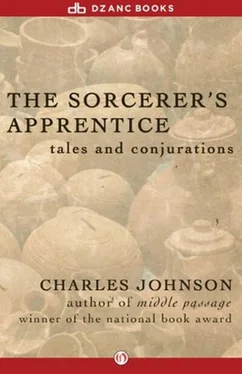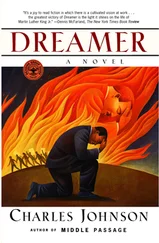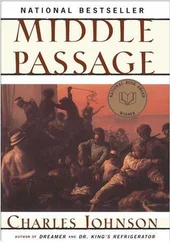Charles Johnson - Sorcerer's Apprentice
Здесь есть возможность читать онлайн «Charles Johnson - Sorcerer's Apprentice» весь текст электронной книги совершенно бесплатно (целиком полную версию без сокращений). В некоторых случаях можно слушать аудио, скачать через торрент в формате fb2 и присутствует краткое содержание. Год выпуска: 2014, Издательство: Dzanc Books, Жанр: Современная проза, на английском языке. Описание произведения, (предисловие) а так же отзывы посетителей доступны на портале библиотеки ЛибКат.
- Название:Sorcerer's Apprentice
- Автор:
- Издательство:Dzanc Books
- Жанр:
- Год:2014
- ISBN:нет данных
- Рейтинг книги:3 / 5. Голосов: 1
-
Избранное:Добавить в избранное
- Отзывы:
-
Ваша оценка:
- 60
- 1
- 2
- 3
- 4
- 5
Sorcerer's Apprentice: краткое содержание, описание и аннотация
Предлагаем к чтению аннотацию, описание, краткое содержание или предисловие (зависит от того, что написал сам автор книги «Sorcerer's Apprentice»). Если вы не нашли необходимую информацию о книге — напишите в комментариях, мы постараемся отыскать её.
Sorcerer's Apprentice — читать онлайн бесплатно полную книгу (весь текст) целиком
Ниже представлен текст книги, разбитый по страницам. Система сохранения места последней прочитанной страницы, позволяет с удобством читать онлайн бесплатно книгу «Sorcerer's Apprentice», без необходимости каждый раз заново искать на чём Вы остановились. Поставьте закладку, и сможете в любой момент перейти на страницу, на которой закончили чтение.
Интервал:
Закладка:
No matter whether the film is yours or not, it pulls you in, reels in your perception like a trout. On the narrow screen, the story begins with an establishing wide shot of an Oklahoma farm, then in close-up shows the face of a big, tow-headed, brown-freckled boy named Bret, and finally settles on a two-shot of Bret and his blond, bosomy girl friend, Bess. No margin for failure in a formula like that. In the opening funeral scene at a tiny whitewashed church, camera favors Bret, whose father has died. Our hero must seek his fortune in the city. Bess just hates to see him go. Dissolve to cemetery gate. As they leave the cemetery, and the coffin is lowered, she squeezes his hand, and something inside you shivers, the sense of ruin you felt at your own mother’s funeral, the irreversible feeling of abandonment. There was no girl with you, but you wished to heaven there had been, the one named Sondra you knew in high school who wouldn’t see you for squat, preferring basketball players to weird little wimps and geeks, which is pretty much what you were back then, a washout to those who knew you, but you give all that to Bret and Bess, the pain of parental loss, the hopeless, quiet love never to be, which thickens the screen so thoroughly that when Bess kisses Bret, your nose is clogged with tears and mucus, and then you have your handkerchief out, honking shamelessly, your eyes streaming, locked — even you — in a cycle of emotion (yours) which their images have borrowed, intensified, then given back to you, not because the images or sensations are sad, but because, at bottom, all you have known these last few minutes are the workings of your own nervous system. That is all you have ever known. You yourself have been supplying the grief and satisfaction all along, from within. But even that is not the true magic of film.
As Bret rides away, you remember sitting in the studio’s tiny editing room amidst reels of film hanging like stockings in a bathroom, the editor, a fat, friendly man named Coates, tolerating your curiosity, letting you peer into his viewer as he patched the first reel together, figuring he owed you, a semifamous scriptwriter, that much. Each frame, you recall, was a single frozen image, like an individual thought, complete in itself, with no connection to the others, as if time stood still; but then the frames came faster as the viewer sped up, chasing each other, surging forward and creating a linear, continuous motion that outstripped your perception, and presto: a sensuously rich world erupted and took such nerve-knocking reality that you shielded your eyes when the harpsichord music came up and Bret stepped into a darkened Oklahoma shed seen only from his point of view — oh, yes, at times even your body responded, the sweat glands swaling, but it was lunchtime then and Coates wanted to go to the cafeteria for coffee and clicked off his viewer; the images flipped less quickly, slowed finally to a stop, the drama disappearing again into frames, and you saw, pulling on your coat, the nerve racking, heart-thumping vision for what it really was: the illusion of speed.
But is even that the magic of film? Sitting back in your seat, aware of your right leg falling asleep, you think so, for the film has no capacity to fool you anymore. You do not give it your feelings to transfigure. All that you see with godlike detachment are your own decisions, the lines that were dropped, and the microphone just visible in a corner of one scene. Nevertheless, it’s gratifying to see the audience laugh out loud at the funny parts, and blubber when Bret rides home at last to marry Bess (actually, they hated each other on the set), believing, as you can’t, in a dream spun from accelerated imagery. It almost makes a man feel superior, like knowing how Uri Geller bends all those spoons.
And then it is done, the theater emptying, the hour and a half of illusion over. You file out with the others, amazed by how so much can be projected onto the tabula rasa of the Big Screen — grief, passion, fire, death — yet it remains, in the end, untouched. Dragging on your overcoat, the images still an afterglow in your thoughts, you step outside to the street. It takes your eyes, still in low gear, a moment to adjust to the light of late afternoon, traffic noise, and the things around you as you walk to your Fiat, feeling good, the objects on the street as flat and dimensionless at first as props on a stage. And then you stop.
The Fiat, you notice, has been broken into. The glove compartment has been rifled, and this is where you keep a checkbook, an extra key to the house, and where — you remember — you put the report due tomorrow at nine sharp. The glove compartment, how does it look? Like a part of your body, yes? A wound? From it spills a crumpled photo of your wife, who has asked you to move out so she can have the house, and another one of the children, who haven’t the faintest idea how empty you feel getting up every morning to finance their lives at a job that is a ghastly joke, given your talents, where you can’t slow down and at least four competitors stand waiting for you to step aside, fall on your face, or die, and the injustice of all this, what you see in the narrow range of radiation you call vision, in the velocity of thought, is necessary and sufficient — as some logicians say — to bring your fists down again and again on the Fiat’s roof. You climb inside, sit, furiously cranking the starter, then swear and lower your forehead to the steering wheel, which is, as anyone in Hollywood can tell you, conduct unbecoming a triple-threat talent like yourself: producer, star, and director in the longest, most fabulous show of all.
POPPER’S DISEASE
I.
I visit my patients frequently, particularly those on farms like Anna Montgomery. She’s poor, as everyone knows, and lives with eleven cats in a dilapidated farmhouse near Murphysboro, too poor to pay my bills — that’s true, except in molasses cookies, gossip about her children in Missouri, and hot cups of milk tea — but come winter, her roof buckles under the weight of snow, her plumbing freezes, and I dutifully make the long drive from Carbondale to dig a path to Anna’s door, and check her cupboard, then her pulse.
Now, I do not mention these weekly visits to the poor to impress you, or to suggest that without Dr. Henry Popper’s services these people would die (many problems, Lord knows, are beyond the pale of physics), but to explain how I came to be on a lonely country road after the severest snowstorm in the history of southern Illinois, and to assure you that, for all the crackpots who report unearthly phenomena, I am the most reliable of men.
House calls help my patients, obviously, but they help me, too. They take me away for hours. They take me, now that it’s out in the open, away from my wife, Mildred. She’s fifty,’ Swedish, still has her looks, and gives piano lessons to our paper boy, Gary Freeman — I think it’s Gary this Sunday. He’s fifteen, the son of Bob Freeman, our pharmacist and one of my friends. “You’re only in the way,” says Mildred, and I daresay she’s right. She doesn’t grudge my Saturday night poker games at the Court House with George Twenhafel, the mayor, and Judge Hal Withers, who started doing push-ups, against my advice, and had some sort of attack. They’re white, I should add, and I’m not, except in the sense that perhaps everyone these days in America is white, insofar as to ask, “Who am I?” is to ask, “By what social forces have I been shaped?” While logic would have it that I am Popper, perhaps you are Popper, too — or, more precisely, aren’t we all tarred by the same cultural brush? Of course, Twenhafel, Withers, and I so cautiously avoid the topic of race during our get-togethers that the conversation seems to be about nothing but race. I’m not sure I understand them, and sometimes I’m convinced they don’t understand me. Yet I have thought this puzzle through since my student days at Tuskegee, then Harvard, and it comforts me to believe we share the same cultural presuppositions — that history, for example, is linear, not circular, reason is preferable to emotion, and that one event “causes” another, although this is clearly, as many scientists have shown, an almost superstitious act of faith.
Читать дальшеИнтервал:
Закладка:
Похожие книги на «Sorcerer's Apprentice»
Представляем Вашему вниманию похожие книги на «Sorcerer's Apprentice» списком для выбора. Мы отобрали схожую по названию и смыслу литературу в надежде предоставить читателям больше вариантов отыскать новые, интересные, ещё непрочитанные произведения.
Обсуждение, отзывы о книге «Sorcerer's Apprentice» и просто собственные мнения читателей. Оставьте ваши комментарии, напишите, что Вы думаете о произведении, его смысле или главных героях. Укажите что конкретно понравилось, а что нет, и почему Вы так считаете.












